-
Doctors
-
Specialities & Treatments
Centre of Excellence
Specialties
Treatments and Procedures
Hospitals & Directions HyderabadCARE Hospitals, Banjara Hills CARE Outpatient Centre, Banjara Hills CARE Hospitals, HITEC City CARE Hospitals, Nampally Gurunanak CARE Hospitals, Musheerabad CARE Hospitals Outpatient Centre, HITEC City CARE Hospitals, Malakpet
HyderabadCARE Hospitals, Banjara Hills CARE Outpatient Centre, Banjara Hills CARE Hospitals, HITEC City CARE Hospitals, Nampally Gurunanak CARE Hospitals, Musheerabad CARE Hospitals Outpatient Centre, HITEC City CARE Hospitals, Malakpet Raipur
Raipur
 Bhubaneswar
Bhubaneswar Visakhapatnam
Visakhapatnam
 Nagpur
Nagpur
 Indore
Indore
 Chh. Sambhajinagar
Chh. SambhajinagarClinics & Medical Centers
Book an AppointmentContact Us
Online Lab Reports
Book an Appointment
Consult Super-Specialist Doctors at CARE Hospitals
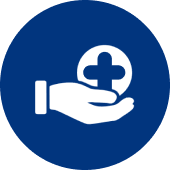
Endoscopy
Endoscopy
Best Endoscopy Test and Treatment in Hyderabad
An endoscopy is a technique or a medical procedure that uses a tiny camera at the end of a long, flexible tube to visually examine your digestive tract. This treatment is used by a gastroenterologist. They diagnose and treat conditions that affect the oesophagus, stomach, and small intestine (duodenum).
Endoscopy is used to identify and treat disorders that affect the major parts of your digestive system, such as the oesophagus, stomach, and small intestine's commencement (duodenum).
The Endoscopy Procedure in Hyderabad is carried out by medical experts and professionals in India at CARE Hospitals. We demand more of ourselves and are relentless in our pursuit of the highest levels of medical knowledge and patient care. We recognise that becoming the best requires us to strive to be better versions of ourselves every day.
We always follow through on our promises and ensure that the greatest level of patient care is provided. We feel that the only way to gain our patients' trust and achieve our objectives is to be consistent.
Symptoms
You may be recommended an endoscopy exam if
-
You have digestive issues like nausea, vomiting, abdominal pain, swallowing difficulty, or any gastrointestinal bleeding.
-
The conditions like anaemia, bleeding, inflammation, diarrhoea, or cancers if detected can also require endoscopy
Endoscopy itself is a diagnostic or therapeutic procedure, and it doesn't typically cause symptoms. However, there may be some mild and temporary side effects or sensations associated with the procedure, such as:
- Digestive Issues: An endoscopy might be suggested if you experience symptoms like nausea, vomiting, abdominal pain, swallowing difficulties, or gastrointestinal bleeding. This procedure allows doctors to directly examine the digestive tract, pinpointing the source of discomfort.
- Anemia: In cases of unexplained anemia, an endoscopy can be necessary to identify gastrointestinal bleeding, ulcers, or other issues responsible for the low red blood cell count.
- Sore Throat: If an upper endoscopy (esophagogastroduodenoscopy or EGD) is performed, a sore throat may occur due to the passage of the endoscope through the throat.
- Gagging or Nausea: Some people may experience a gagging sensation or mild nausea during the procedure, especially if a scope is used in the throat or upper gastrointestinal tract.
- Bleeding: Persistent or unexplained bleeding in the gastrointestinal tract may demand an endoscopy to locate and treat the source.
- Inflammation: Conditions involving chronic inflammation, such as Crohn's disease or ulcerative colitis, may necessitate endoscopy for diagnosis and monitoring.
- Diarrhea: If persistent diarrhea is unresponsive to standard treatments, endoscopy can help identify causes like infections, inflammation, or malabsorption.
- Cancer: Suspected gastrointestinal cancers often require endoscopic procedures for early detection and to obtain tissue samples for biopsy, aiding in diagnosis and treatment planning.
These symptoms are usually short-lived and resolve quickly after the procedure. Serious complications from endoscopy are rare, but like any medical procedure, there are some risks, which your healthcare provider will discuss with you before the procedure.
Risks
Endoscopy Procedure in Hyderabad is one of the safest procedures carried out. Although it is a surgery and hence can have rare complications. These include-
-
Bleeding- If the process involves taking a piece of tissue for testing (biopsy) or treating a digestive system disease, your risk of bleeding issues is higher. This bleeding may encourage a person to go for a blood transfusion.
-
Infection- Endoscopies usually consist of a visual examination and a biopsy, with a low risk of infection. You are at the risk of getting infected if any other additional procedure is performed. Antibiotics can be used to treat a wide range of ailments. Your doctor may prescribe antibiotics before your surgery to avoid any infection.
-
Gastrointestinal tract tears- If you have a tear in your oesophagus or any section of your digestive tract, you may need to be admitted to the hospital and have surgery to repair it. This complication is extremely rare.
There are other signs one has to watch post endoscopy like-
- Fever
- Chest pain
- Breathless or Shortness of breath
- Bloody, black or very dark coloured urine
- Difficulty swallowing
- Severe or continuous abdominal pain
- Vomiting ( bloody vomit or coffee coloured)
One is required to get in emergency care if any of these symptoms occur post the endoscopy. We at CARE Hospitals recommend a weekly follow-up after the procedure.
Diagnosis
The process of diagnosis involves preparation before the endoscopy. These are done after you're asked to rest on the table comfortably. The procedure will start after the person is comfortable. It involves-
-
Monitors or cameras will be attached to your body. It will help the doctors to keep a track of your breathing, blood pressure and heart rate.
-
Sedatives are given- the medicines like sedatives are given and patients are examined after the effect. It is given via the arm or forearm. You’ll feel relaxed
-
Anaesthetic is given inside the mouth- This drug will numb your throat in preparation for the long, flexible tube to be inserted (endoscope). To keep your mouth open, you may be requested to wear a plastic mouthguard.
-
Endoscope insertion- you’ll be required to swallow the tube inside. The discomfort and pressure can be felt but is painless.
The noises can be made but you won’t be able to talk while the diagnosis is made.
Treatment
Endoscopy Treatment is the procedure after knowing all your vitals are working and pre-medical conditions. You’ll be undergoing the surgery and will have the following-
-
Images are transmitted to a video monitor in the exam room via a tiny camera at the tip. This monitor is monitored by your doctor to check for anomalies in your upper digestive tract. If problems in your digestive tract are discovered, your doctor may take photos to examine later.
-
To expand your digestive tract, gentle air pressure may be supplied into your oesophagus. The endoscope may now move around freely. It also makes it easier for your doctor to observe the folds of your digestive tract. You may feel a sense of pressure or fullness as a result of the additional air.
-
Your doctor will use the endoscope to take a tissue sample or remove a polyp by passing special surgical equipment through it. To direct the tools, your doctor monitors the video display.
After your endoscopy, you'll be transported to a recovery area where you can sit or rest quietly. You can rest there for an hour and the doctors will also get the chance to see any other after-effects post the endoscopy. CARE Hospitals has a very reasonable endoscopy cost in Hyderabad. It is a non-surgical procedure that is used to either observe or operate on the internal organs, tissues or vessels of the body.
Following an endoscopy, you may feel some mildly unpleasant indications and symptoms at home, such as:
-
Bloating and gas
-
Cramping
-
Sore throat
This is normal.
Why choose CARE Hospitals
CARE Hospitals aim is to be India's most well-known healthcare provider, dedicated to the highest levels of clinical quality and patient care and endoscopy hospital in Hyderabad, backed by cutting-edge technology and research. We demand more of ourselves in order to provide more for our patients. We strive for excellence in everything we do so that we can provide the best level of patient-centred care possible.
FAQs
1. Are there different types of endoscopy?
Yes, there are various types of endoscopy procedures, including upper endoscopy (esophagogastroduodenoscopy or EGD), colonoscopy, bronchoscopy, and many others. Each type is used to examine specific parts of the body.
2. Is endoscopy painful?
Endoscopy is typically not painful. Patients may experience some discomfort, but anesthesia or sedation is often administered to ensure the procedure is as painless as possible.
3. Are there risks associated with endoscopy?
While endoscopy is generally safe, there are some risks involved, such as bleeding, infection, and perforation. These risks are relatively rare, and your healthcare provider will discuss them with you before the procedure.
Our Doctors
-
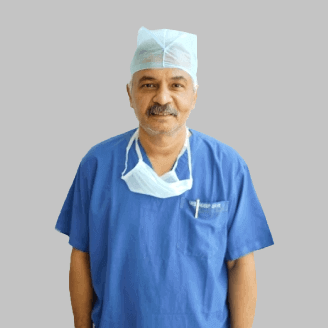
Dr. Sandeep Dave
MBBS, MS, FIAGES, FAMS
Gastroenterology – Surgical, General Surgery
View More -
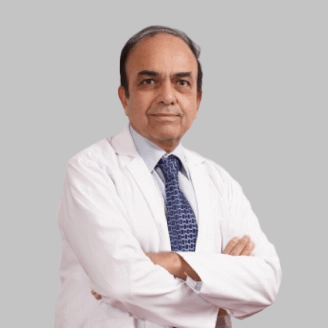
Dr. C P Kothari
MBBS, MS, FICS, FIAGES, FMAS
Gastroenterology – Surgical
View More -
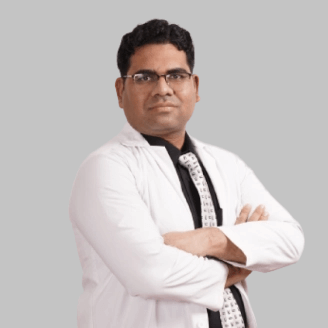
Dr. Surendra Kumar Khunte
MBBS, MD Medicine, DM (Gastroenterology)
Gastroenterology Medical
View More -
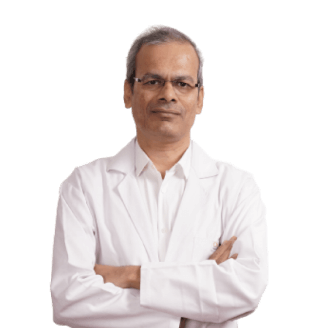
Dr. Ravindra Kale
MBBS, MD (Medicine), DM (Gastroenterology)
Gastroenterology Medical
View More -
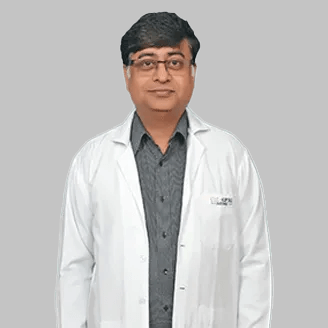
Dr. Neeraj Jain
MBBS, MD, DNB, DM
Gastroenterology Medical
View More -
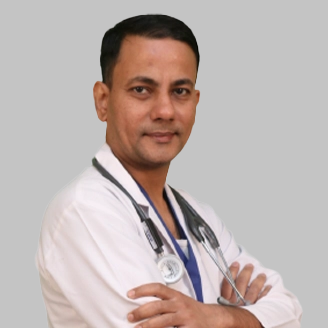
Dr. A R Vikram Sharma
MBBS, MS
General Surgery
View More -
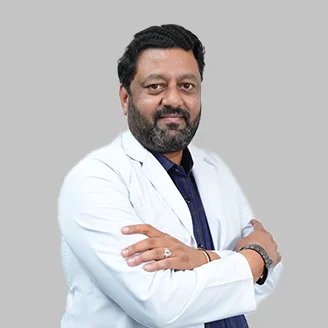
Dr. Akash Chaudhary
MBBS, MD, DM
Gastroenterology Medical
View More -
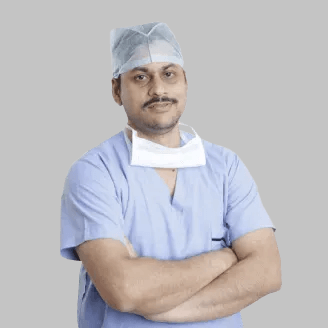
Dr. Alok Rath
MBBS, MS, FNB (Minimal Access & Surgery)
Gastroenterology – Surgical, General Surgery
View More -
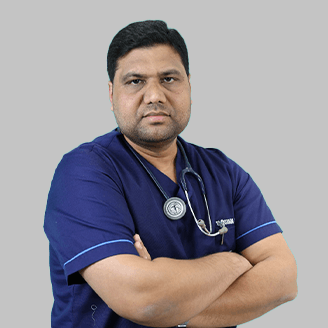
Dr. Anshuman Singh
MBBS, MD (Medicine), DM (Gastroenterology - IPGMER Kolkata)
Gastroenterology Medical
View More -
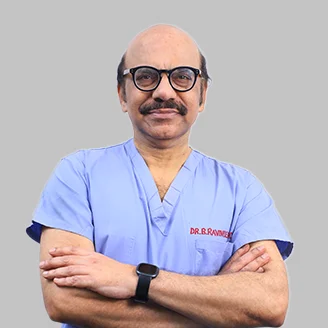
Dr. B Ravinder Reddy
MBBS, MS, FRCS (Edinburgh), FRCS (Glasgow)
Gastroenterology – Surgical, General Surgery
View More -
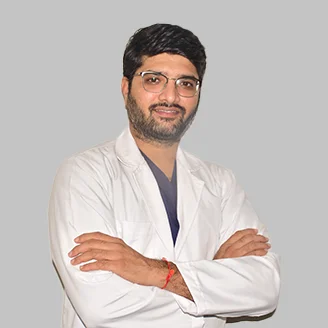
Dr. Bhageerath Raj D
MBBS, MD, DM (Gastro)
Gastroenterology Medical
View More -
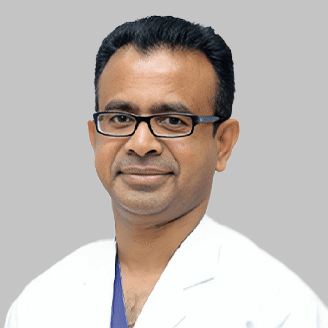
Dr. Bhupathi Rajendra Prasad
MS, DNB (Superspeciality, Surgical Gastro-NIMS), FICRS (Robotic Surgery), FMAS (Minimal Access Surgery), FALS (Fellowship in Advanced Laproscopic Surgery - Oncology, Colorectal, HBP, Hernia)
Gastroenterology – Surgical
View More -
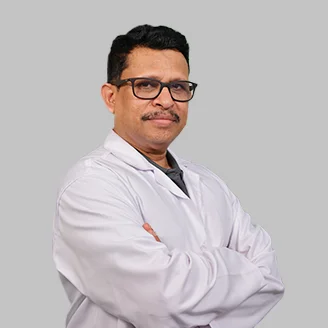
Dr. Biswabasu Das
MBBS (Hons), MS (General Surgery), MCh (Surgical Gastroenterology) (AIIMS New Delhi), Fellow (HPB SURG) (MSKCC, NY, USA)
Gastroenterology – Surgical
View More -
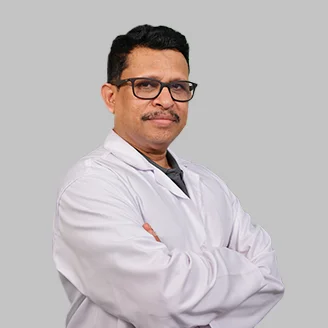
Dr. Biswabasu Das
MBBS (Hons), MS (General Surgery), MCh (Surgical Gastroenterology) (AIIMS New Delhi), Fellow (HPB SURG) (MSKCC, NY, USA)
Gastroenterology – Surgical
View More -

Dr. D.V. Srinivas
MBBS, MD, DM
Gastroenterology Medical
View More -
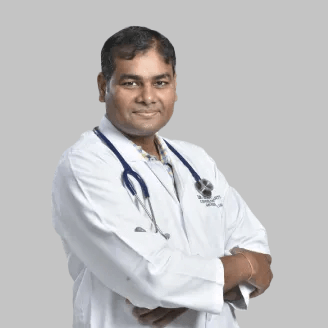
Dr. Dillip Kumar Mohanty
MBBS, MD, DNB (Gastroenterology), Fellowship in Advance Endoscopy & ERCP
Gastroenterology Medical
View More -
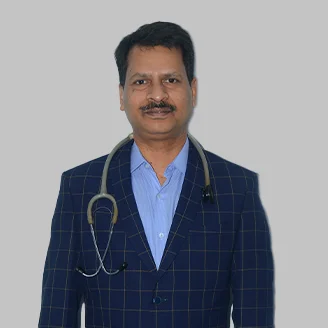
Dr. G. Satyanarayana
MBBS, MD (Medicine), DM (Gastroenterology)
Gastroenterology Medical
View More -
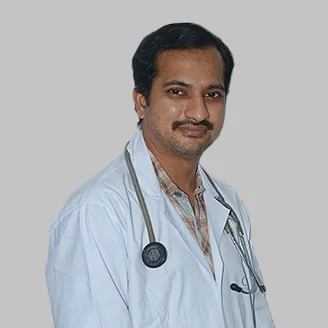
Dr. Ghana Shyam Gangu
MBBS, DNB, DM (Gastroenterology)
Gastroenterology Medical
View More -

Dr. Hitesh Kumar Dubey
M.B.B.S, M.S (Gen. Surgery), MCH-SS (G.I and HPB Surgery)
Gastroenterology – Surgical
View More -
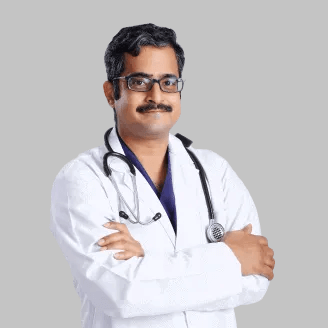
Dr. J Vinod Kumar
MBBS, MS, FAIS, FIAGES, FMAS
Gastroenterology – Surgical, General Surgery
View More -
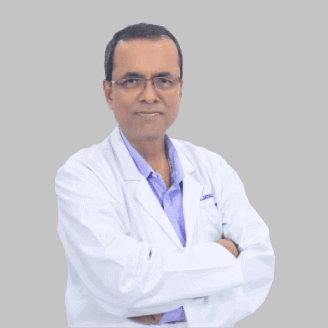
Dr. Jatashankar Mohapatra
MBBS, MS (General Surgery)
Gastroenterology – Surgical, General Surgery
View More -
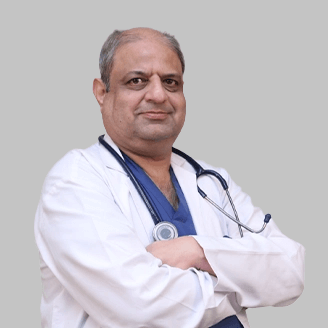
Dr. Jawwad Naqvi
MBBS, MS, FIAGES, FMAS, FIALS
Gastroenterology – Surgical, General Surgery
View More -
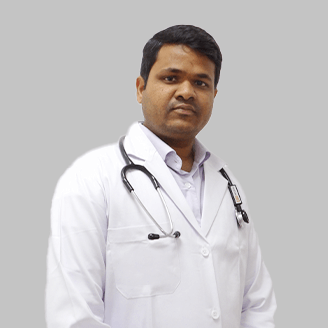
Dr. Karthikeya Raman Reddy
MBBS, MD (General Medicine)
Gastroenterology Medical
View More -
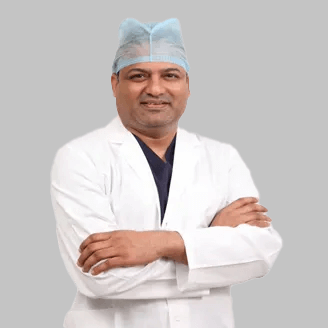
Dr. Karunakar Reddy
MBBS, MS (General Surgery), DNB (Surgical Gastroenterology)
Gastroenterology – Surgical
View More -
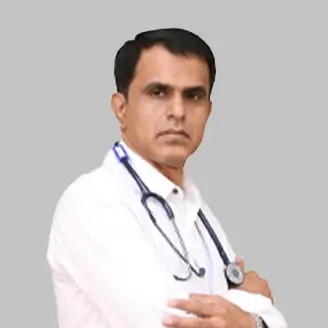
Dr. Lalit Nihal
MBBS, MD, DM
Gastroenterology Medical
View More -
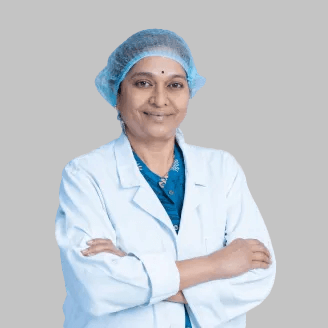
Dr. M. Asha Subba Lakshmi
MBBS, MD (General Medicine), DM (Gastroenterology)
Gastroenterology Medical
View More -
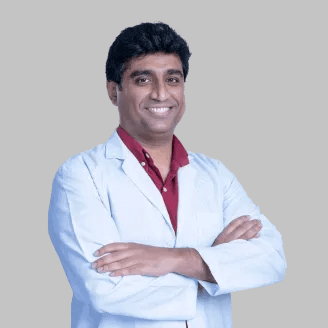
Dr. Mustafa Hussain Razvi
MBBS, MS (General Surgery), DNB (Surgical Gastroenterology)
Gastroenterology – Surgical, General Surgery
View More -
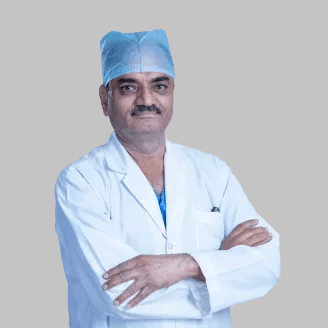
Dr. P. P. Sharma
MBBS, MS (Surgery), FAIS, FICS, FMAS, FIAGES
Gastroenterology – Surgical, General Surgery
View More -
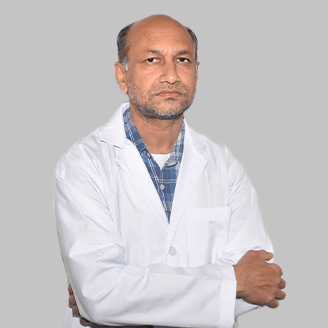
Dr. Parvez Ansari
MBBS, DNB (General Surgery)
General Surgery
View More -
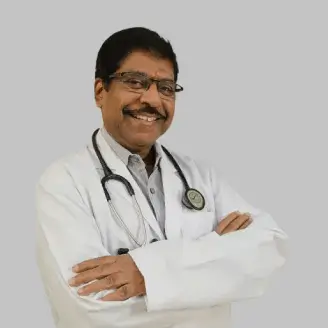
Dr. Ramsagar Vidya Sagar
MD, DM
Gastroenterology Medical
View More -
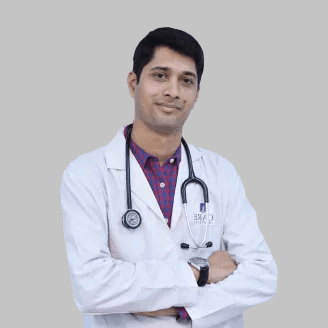
Dr. Rohan Kamalakar Umalkar
MBBS, MS (General Surgery)
General Surgery
View More -
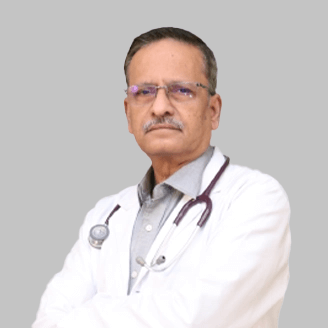
Dr. Sandeep Pandey
MD, DM
Gastroenterology Medical
View More -
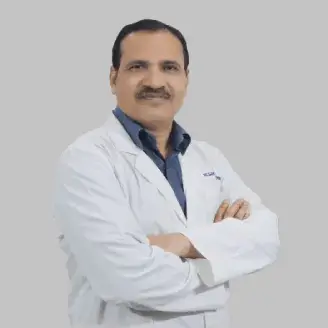
Dr. Santosh Kumar Behera
MBBS, MS (General Surgery)
Gastroenterology – Surgical, General Surgery
View More -
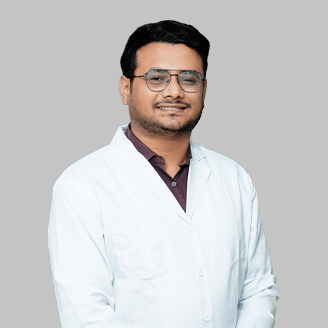
Dr. Saurabh Lanjekar
MBBS, MD, DNB (Gastroenterology)
Gastroenterology Medical
View More -
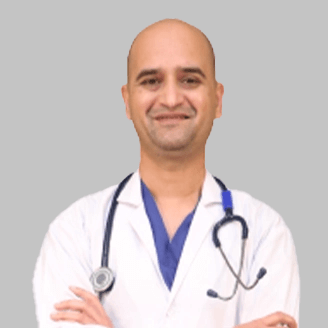
Dr. Siddarth Tamaskar
MBBS, MS, FMAS, FIAGES
Gastroenterology – Surgical, General Surgery
View More -
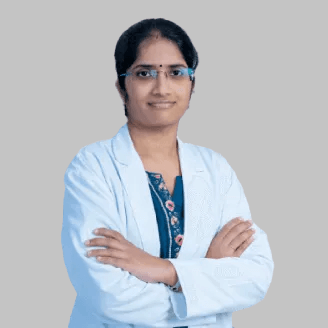
Dr. Swathi G
MD (General Medicine), DM (Gastroenterology)
Gastroenterology Medical
View More -
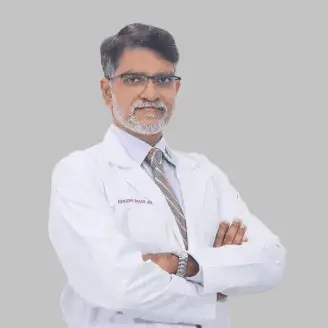
Dr. Tapas Mishra
MS, FIAGES, FMAS, DIPMAS (Bariatric)
General Surgery, Laparoscopic and Bariatric Surgery
View More -
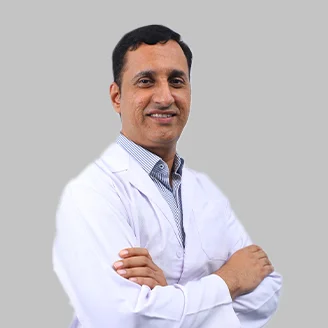
Dr. Venugopal Pareek
MBBS, MS, DNB, FMAS, FIAGES, FAIS
Gastroenterology – Surgical, Laparoscopic and Bariatric Surgery
View More -
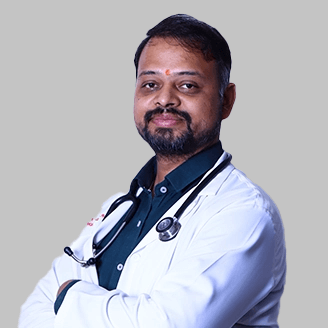
Dr. Vinit Kahalekar
MBBS
Gastroenterology Medical
View More
Frequently Asked Questions
Still Have a Question?

